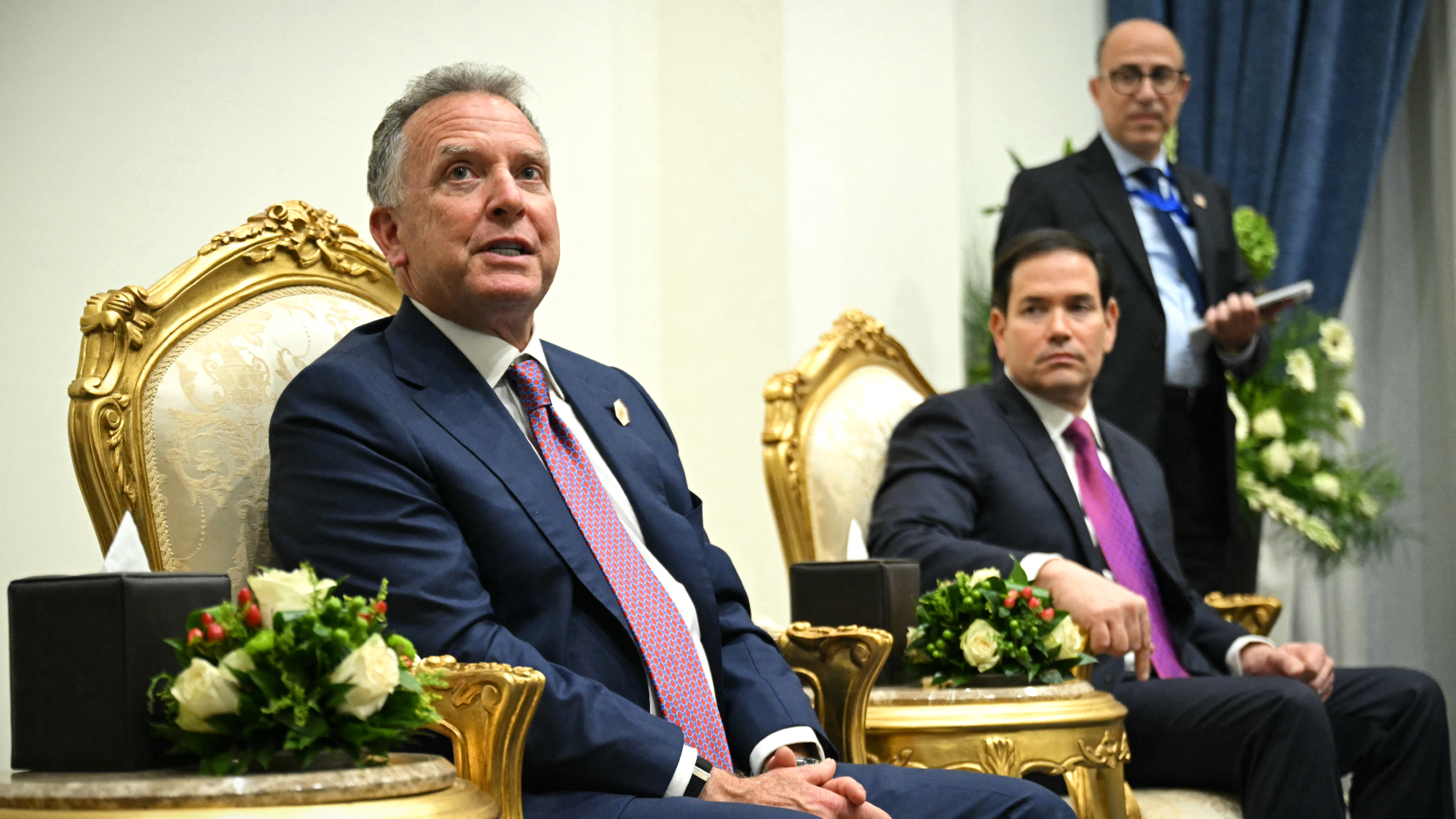Trump pushes new Ukraine peace plan
It involves a 28-point plan to end the war


A free daily email with the biggest news stories of the day – and the best features from TheWeek.com
You are now subscribed
Your newsletter sign-up was successful
What happened
A senior U.S. military delegation arrived in Kyiv on Wednesday as President Donald Trump’s administration was finalizing a 28-point proposal to end the war in Ukraine. The plan, “negotiated between the Trump administration and Russia” with no Ukrainian input “would require Kyiv to surrender territory, significantly reduce the size of its army and relinquish some types of weaponry,” The New York Times said, citing officials. It reflects the “maximalist demands the Kremlin has made throughout the war” and Kyiv has “long denounced as amounting to capitulation.”
Who said what
Trump’s revived push for a peace deal “began late last month” with a secret meeting in Miami between his peace envoy Steve Witkoff and Russian emissary Kirill Dmitriev, Politico said. It would “require Ukraine to surrender to Russia the entire eastern Donbas region, even lands that Russian forces have not captured,” the Times said, as well as other terms “unacceptable to Kyiv.”
The administration is “attempting the same approach it used to achieve a U.S.-brokered cease-fire in Gaza last month — draft a multi-point outline and then push the warring parties to accept it,” The Wall Street Journal said. It is “likely to run into strong opposition in Kyiv and from European governments,” but proponents of the plan argue that “Russia’s steady but incremental gains on the battlefield” and a “corruption scandal involving associates” of Ukrainian President Volodymyr Zelenskyy will “add pressure on Kyiv to make a deal.”
The Week
Escape your echo chamber. Get the facts behind the news, plus analysis from multiple perspectives.

Sign up for The Week's Free Newsletters
From our morning news briefing to a weekly Good News Newsletter, get the best of The Week delivered directly to your inbox.
From our morning news briefing to a weekly Good News Newsletter, get the best of The Week delivered directly to your inbox.
What next?
As European officials “publicly voiced concern about the plan,” the Journal said, Secretary of State Marco Rubio “cast it as an ‘exchange of serious and realistic ideas’ and not a diktat that the U.S. is seeking to impose on the two sides.”
A free daily email with the biggest news stories of the day – and the best features from TheWeek.com
Peter has worked as a news and culture writer and editor at The Week since the site's launch in 2008. He covers politics, world affairs, religion and cultural currents. His journalism career began as a copy editor at a financial newswire and has included editorial positions at The New York Times Magazine, Facts on File, and Oregon State University.
